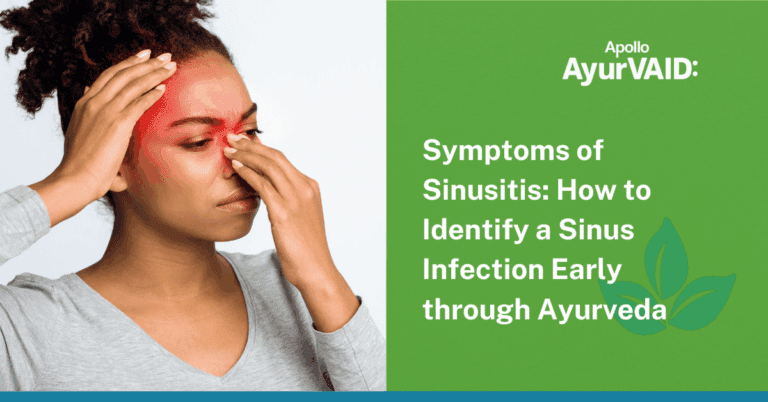Stress is a normal physiological response to a challenging situation. It enables our body to adapt and equip ourselves for difficult and unprecedented situations when we sense danger, which triggers the body’s defence system into a stress response. This stress response keeps us focused and energetic and helps us rise to meet challenges. But beyond a certain level, stress can start having numerous negative impacts on health, mood, relationships and well-being.
In today’s fast-paced world, stress seems almost unavoidable. Deadlines, responsibilities, emotional stress, and constant digital distractions can often feel overwhelming. If you’ve been wondering how to manage stress in a way that really lasts, this blog is for you. Let’s look at the 10 ways to cope with stress and make your life more peaceful and meaningful.
1. Find out what is causing your stress
You need to know what the problem is before you can fix it. Is your stress a result of physical causes like exertion, nutritional deficiency, unhealthy eating habits, hormonal imbalance, etc.? Or is it due to psychological causes like loss of a loved one, relationship issues, and cognitive overload?
In Ayurveda, stress and anxiety are a result of the imbalance of both Shareera dosha (Vata, Pitta and Kapha) and Manodosha (Rajas and Tamas). If your Vata is out of balance, you may feel anxious, have an inability to focus and be restless. If your Pitta is out of balance, you may feel angry and have an obsessive need for control, criticism of self and others, and irritability. If your Kapha is out of balance, you may feel sluggish and withdrawn. Signs of unhealthy Rajas include being restless, impulsiveness, and not being able to relax. When there is a lot of Tamas, it can lead to feeling down, confused, and low on energy. Recognising your pattern is the first step to getting back to normal and learning how to deal with stress.

2. Make sleep and rest a priority
One of the easiest ways to lower stress is to give your body what it needs most: sleep. Chronic stress makes it difficult to sleep, lowers your immune system, and makes it hard to think clearly. Ayurveda says that you should sync with the natural rhythms of the day (dinacharya). This means having early and light dinners, doing Padabhyanga or foot massage and going to bed at the same time every night. A glass of warm milk with turmeric or a few minutes of deep breathing before bed can help your nervous system get ready for sleep, which will help you heal. Limit screen time and stimulants like caffeine.
3. Eat the right foods to stay healthy.
Your diet influences your mood and energy levels. In Ayurveda, food is medicine. Choose to eat foods that are warm and grounding, such as rice, lentils, ghee, and seasonal vegetables. Avoid spicy foods, processed sugars, and excessive caffeine, as these foods aggravate the Pitta and Vata doshas. If you are seeking to destress, start with your plate, as a healthy gut means a relaxed mind.
5. Mindfully Move Your Body
Ayurveda advises choosing activities that balance your energy rather than deplete it, and exercise is a tried-and-true method to elevate your mood. For those with Vata types, gentle yoga and walking are ideal. An evening stroll or a swim can help soothe a fiery Pitta person’s mind. Moving quickly, such as when dancing or jogging, makes kapha people feel better. Because it increases blood flow, releases endorphins, and improves mood, exercise is one of the simplest daily stress-reduction strategies.
6. Practice Abhyanga.
7. Become more aware of your feelings
When you ignore or push down your feelings, stress often builds up. You can let out pent-up energy by writing in a journal, doing something creative, or talking to a close friend. Unprocessed emotions can become ama (toxins) in the body, upsetting the balance of the mind and body, as Ayurveda reminds us. Emotional resilience is one of the best ways to deal with stress over the long term. You can build it by taking the time to think about your feelings without judging them.
8. Maintain a well-balanced daily schedule.
9. Explore herbal and Ayurveda treatments.
When life gets too much to handle, Ayurveda has proven ways to bring things back into balance. Herbal formulations under the expert guidance of a doctor can help you relax and focus. Shirodhara,in which warm oil is poured over the forehead, calms the nervous system. Panchakarma cleanses the body and mind. These treatments go beyond just hiding the symptoms of stress and fatigue; they actually fix the underlying problem, which helps you feel better and have more energy. Apollo AyurVAID has developed the Peak Health Programme, which helps busy professionals manage stress with a more comprehensive, outcome-driven approach that suits their busy lives in the perfect manner. Discover how this programme can be a game-changer in your professional journey here.
9. Explore herbal and Ayurveda treatments.
Inner fulfilment is what really relieves stress; it’s more than just feeling calm for a short time. Ayurveda says that living with purpose, or dharma, brings peace and harmony. When you live by your values and stay grateful every day, even tough times don’t seem so bad. Every night, take a minute to write down three things that make you happy. This small thing is one of the ten easiest ways to reduce stress that really changes how you see things. It goes from being tense to being thankful.
Ayurveda Stress Management: A Whole-Person Approach to Healing
Imbalances of the mind can result from an imbalance between your doshas and Manogunas, which eventually leads to Manovaha srotodushti, when your mind’s energy channels are obstructed. Ayurveda provides a scalable and whole-person approach to treating stress with adaptogenic herbal formulations that help the mind calm down and focus by strengthening the nervous system and balancing doshas. Learn more about such herbs here.
Ayurveda also has many more approaches to promote better emotional health, other than herbal supplements. A diet in accordance with your dosha can induce natural relaxation, and exercise, along with yoga practice, can help maintain your optimal body-mind-spirit balance. Meditation and breathing practices are also recommended and serve as a next-step approach to significantly calming the mind. Detox treatments like Panchakarma make the body feel better, and dosha-specific recommendations, Pitta-pacifying Takradhara and Vata-soothing Shirodhara, make the results even better.
Through this integrative and preventative framework, Ayurveda provides a time-tested, personalised pathway to enhance resilience, restore harmony, and cultivate long-term emotional and physical well-being.
Conclusion
References
FAQ
- Avoid: Whenever possible, avoid a stressful situation, as you are in control. You can take an active role, possibly even plan for those stressful moments. Carry a to-do list, prioritise yourself, and reduce hassles when possible to avoid people and situations that cause you stress.
- Alter: When you can’t avoid a stressful situation, look for ways to alter the situation itself. If a person stresses you out when you engage with them, ask them to change the way they communicate with you. Set boundaries in advance and manage your time better.
- Accept: When you cannot avoid or alter a situation, accept it. The more open you are in conversations and the kinder you are with yourself, the better you will cope.
- Adapt: Change your expectations. The more you adapt to the situation causing stress, the less overwhelmed you become.






